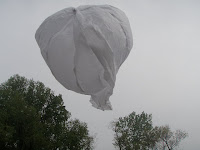| image from the ISTE website |
 |
| image from the Consolidated High School District 230 website |
I am also planning on presenting at my school district's April 2012 institute day, with more data as I continue the practice of incorporating more web 2.0 tools into all my courses.
Here is the introduction paragraph for my Publishing/Leadership Project:
All students, including my seniors, have difficulty maintaining a high interest level and motivation throughout the entire length of a semester. The question I will attempt to answer is whether integrating different forms of digital storytelling into my Mythology course will increase student interest and motivation in that class. I began by wondering what would happen if I included options for different delivery methods for the presentations my students created in the three rounds of projects that were done during the semester. I hope to demonstrate that I am improving my practice as an instructor as well as to contribute to the body of literature regarding student motivation and interest when digital storytelling is introduced into a classroom.
This link will download the rest of my paper: Colletti_Michael_PubLeadProject.docx
Here are the links to my "Think Out Loud" blog posts:
Wk 3 Publishing/Leadership Project part 1 of 2: Presentation v. Publication





